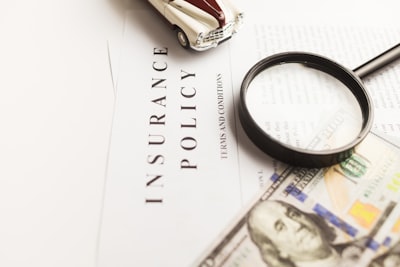 Today’s economic conditions have everyone scrambling to tighten their belts. This might mean re-examining regular costs like your car insurance premiums. You might wonder about ways you can save on your premium and increase your solvency. Indeed, there are a lot of opportunities for you to cut costs. However, simply cutting your coverage is not usually one of them. Consider the ways you can approach savings responsibly.
Today’s economic conditions have everyone scrambling to tighten their belts. This might mean re-examining regular costs like your car insurance premiums. You might wonder about ways you can save on your premium and increase your solvency. Indeed, there are a lot of opportunities for you to cut costs. However, simply cutting your coverage is not usually one of them. Consider the ways you can approach savings responsibly.
Why Cutting Coverage Might Not Work
You might think that carrying less car insurance might help you save on your premiums. Not so fast.
Yes, by buying less coverage, you shift the cost burden away from the insurance company. However, you also leave yourself without critical protection. Never cut your policy limits without consultation with your insurance agent.
Most states require all drivers to have certain types of auto insurance all the time. Forty-nine states set minimum coverage limits for all drivers. Florida requires registered drivers to have at least the following coverage:
- $10,000 Personal Injury Protection (PIP)
- $10,000 Property Damage Liability (PDL) Insurance
You cannot drive legally without this coverage. In fact, many drivers carry more coverage than just the required limits.
However, to save on costs, some people might try to reduce their PIP and PDL limits back to the minimum levels. While doing so will keep you legal, it will deprive you of critical protection if you get hurt in a wreck or if someone sues you for causing them property damage. We strongly encourage all drivers to maintain as high of PIP and PDL limits as they can afford.
Other coverage requirements might apply if you finance or lease a car. Some lenders require drivers to buy comprehensive and collision insurance. These types of coverage pay for damage to the insured car if it sustains damage that is the driver’s fault. As long as you have the car loan or lease, you might have to carry this coverage.
Still as your car ages, it will begin to lose value. Eventually, any assistance your physical damage insurance can offer might prove negligible. So, the cost of carrying coverage might outweigh the benefits. As a result, you might be able to drop your physical damage coverage on an older car.
Don’t forget, though, that for as long as you have a loan, you might have to carry coverage. Additionally, if you don’t have coverage for physical damage, then you will have to pay for repairs out of pocket. Therefore, only drop coverage if you feel confident that you can pay for the damage.
More Convenient Ways to Save on Your Rates
Before even thinking about reducing coverage, remember that there might be other convenient ways to save on your premium. Most insurance providers offer a variety of solutions that might prove simple to get.
- Consider increasing your damage deductibles. A deductible is a portion of vehicle damage costs that you must pay yourself. Your insurer will subtract the deductible cost from your final settlement value. So, you have a $500 collision deductible and your car sustains $3,000 in damage, then your insurer will pay $2,500 and you will pay $500. The higher your deductible, the less your insurer might have to pay, and the less they might have to charge you.
- Work to clear your driving record. Infractions on your driving record, particularly serious ones like DUIs, might drive up rates. However, many infractions disappear after a few years. If you work to minimize or eliminate these notations, then you might save.
- Take a safe driving course. Some insurers offer discounts if you take and pass a defensive driving course. These classes help you re-familiarize yourself with the finer points of safe driving. Sometimes, classes will even help drivers who have gotten tickets get them dismissed.
- Remain loyal to the same insurer. If you stay with the same car insurer for several years (usually 5+) then your insurer might award you a longevity discount. Jumping between insurers to get the best prices might not prove beneficial in the long run.
- Make your policy automatic. These days, you can often pay your premium and renew your policy automatically at the end of the term. This helps your insurer reduce the risk that your coverage will lapse, and you might qualify for a discount.
- Report appropriate mileage. The more you drive, the more likely you are to have a wreck. Therefore, drivers who have high mileage readings might pay more. Report your mileage accurately if your agent asks.
- Consider telematics programs. Many insurers now offer telematics services. These programs allow the insurer to track the insured’s driving habits. Through a simple cell phone app, they might be able to track your average speed, mileage and instances of hard braking. They can determine if they really are charging you the right premium. If you participate in one of these programs, you will usually get a discount when your policy renews.
Every time you need to renew coverage, ask your agent if you can qualify for more savings. By being proactive in asking about your savings potential, you can better stabilize your household budget.